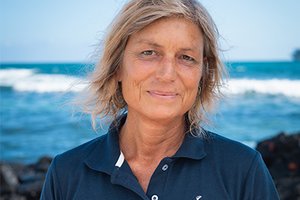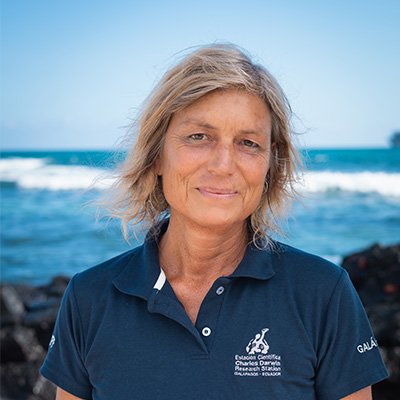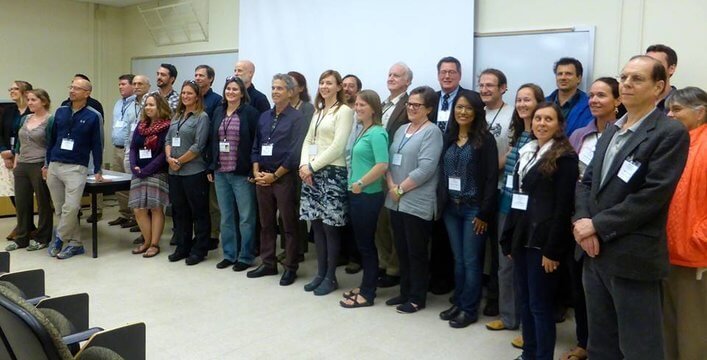
The symposium “Galápagos 2015: Science, Conservation, and History in the 180 years since Darwin” gathered about 60 researchers, experts, students and passionate audience for the conservation of the species in the Galapagos Islands. Pacific division of the American Association for the Advancement of Science (AAAS) hosted the conference from June 15th to June 17th, 2015, where several representatives of Galapagos research presented their work about how to recover the balance of a fragile ecosystem characteristic of the archipelago.
180 years have gone by since Charles Darwin visited the Galapagos Islands, the past 51 years of history of the Charles Darwin Foundation (CDF) were illustrated by Peter Kramer, one of the first directors of the organization, talking about the cooperation that CDF has maintained with the Government of Ecuador through innovative scientific advising to the Galapagos National Park.
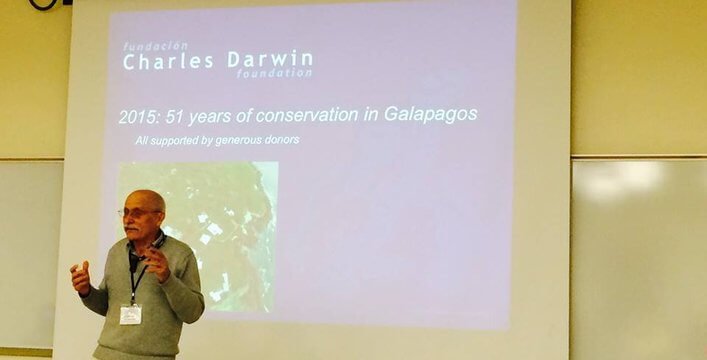
Patricia Jaramillo, project leader who seeks to restore degraded ecosystems and promote sustainable agriculture in the archipelago alongside the Galapagos National Park explained the importance of the Galapagos Green 2050 Project.
"It was an incredible opportunity to learn about the latest scientific advances in Galapagos, along with many experts who have contributed for decades to the archipelago..." said Patricia Jaramillo.
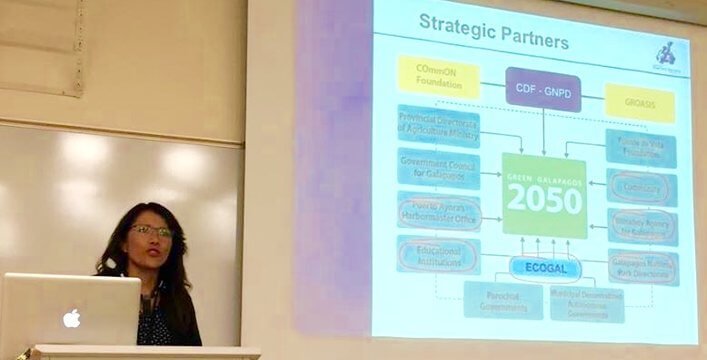
An innovative effort is the Galapagos Landbird Program, which was presented by Birgit Fessl. She stated that "... people have in mind again the work needed in Galapagos and the immense effort that the CDF is doing."
Several discussions took place at the symposium and interesting studies on various species of flora and fauna of the Galapagos Islands were presented. The event organized by CDF collaborating scientist Matthew James, opened the doors to clear views about the conservation efforts, science topics and history taking place in the best preserved archipelago on the planet.
More Information
Reflections on a Symposium by Matthew James
Galápagos Issues Highlighted at San Francisco Science Conference by George Lewis





